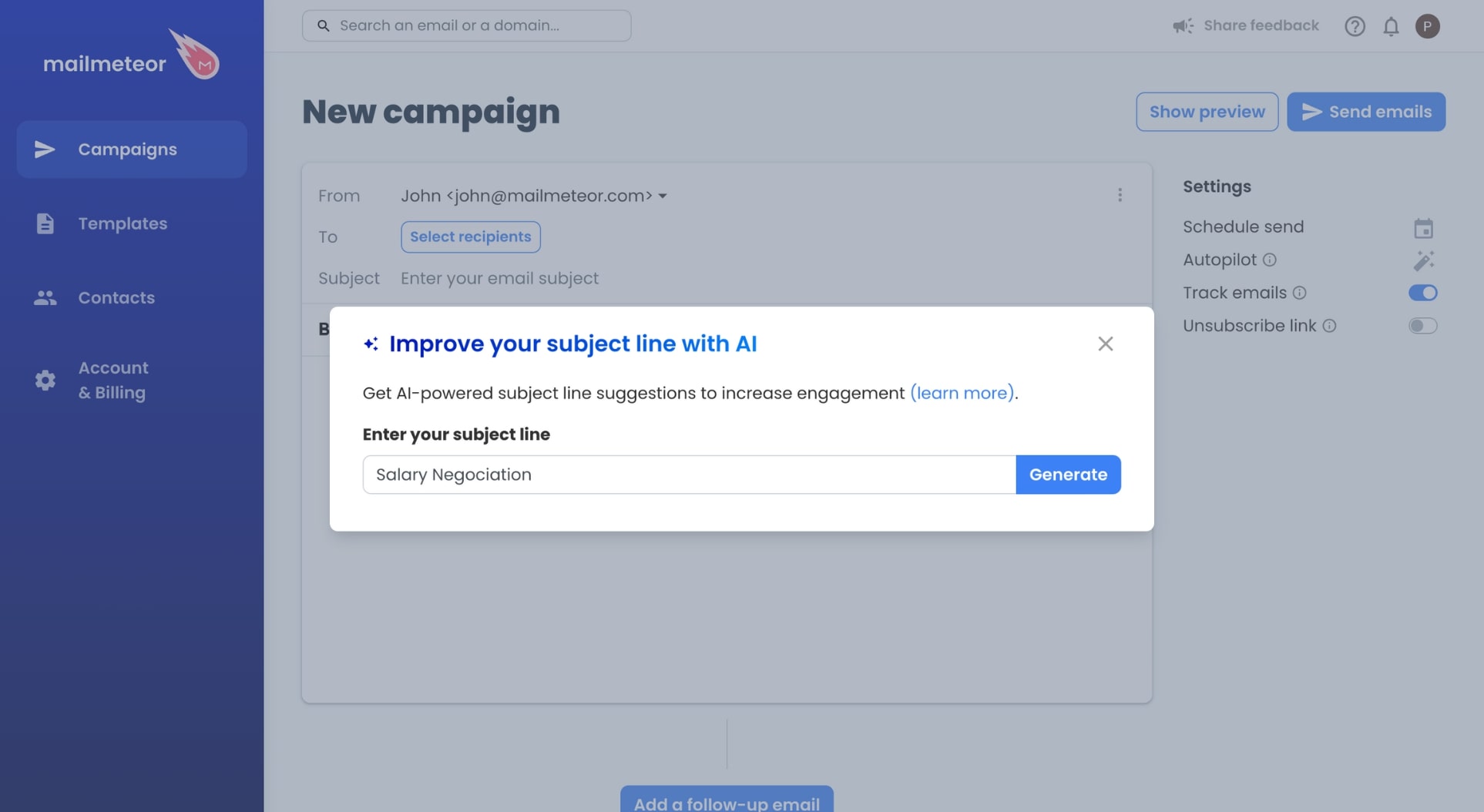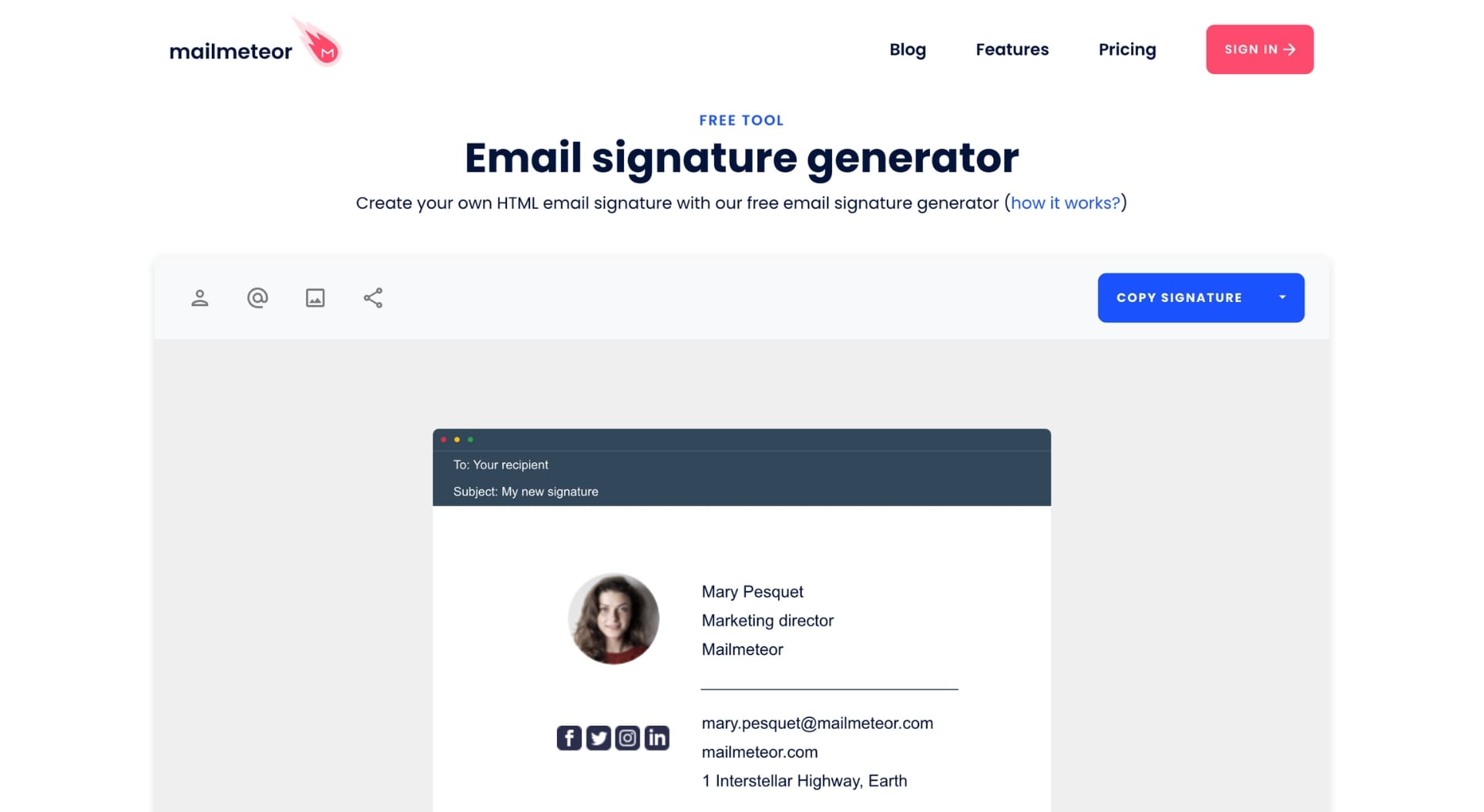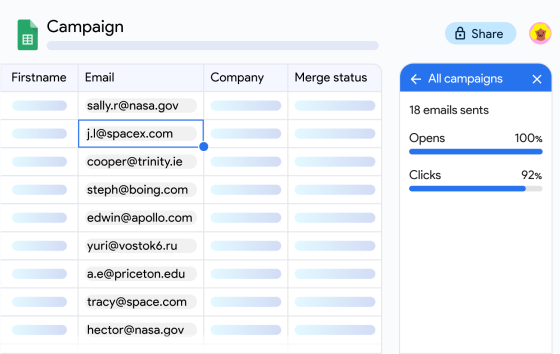Unhappy with your starting salary? In this quick guide, we’ll show you how to write a stellar salary negotiation email so that you can finally get the paycheck you deserve.
Your salary matters. Sure, you need it to pay your bills at the end of the month. But that’s not all there is to it.
When your employer pays you fairly, it makes you happier at work. Because it shows they value and appreciate your efforts.
However, most people are reluctant to engage in salary negotiations, primarily for the following reasons:
- Fear of consequences – Employees often worry that discussing salary might deteriorate their relationship with their employer or supervisor.
- Lack of information – Sometimes, wage earners don’t know what’s a fair salary for their job.
- Social taboos – In some cultures, salary negotiations are considered taboo, and people feel uncomfortable talking about money.
According to a Salary.com survey, only 12% of employees ask for a higher salary during their yearly review, while 44% never bring it up.
That’s too bad. Because 85% of the workers who tried to negotiate their salary got at least some of what they asked for.
If you feel uncomfortable discussing compensation, it may be a good idea to learn how to write a salary negotiation email.
In this quick guide, we’ll go over why negotiating your salary via email is a good idea and how to write a proper salary negotiation email.
We’ll also share with you some of our favorite salary negotiation email examples and 3 proven templates.
Why negotiate your salary via email?
Emails are one of the best ways to negotiate your salary. Here’s why you should at least consider sending a salary negotiation email ⤵️
- Maintain composure – When you negotiate in person or on the phone, you might get emotional or feel rushed. Email negotiations help you stay calm and avoid making hasty, emotional decisions.
- Document your claim – With emails, you can keep a written record of your negotiation. This can protect your interests and make sure that you and your employer are on the same page.
- Reduced pressure – Negotiating in person or over the phone can be nerve-wracking. In comparison, email negotiations are less stressful. You can take your time to write without feeling too pressured.
- Convenience – When you negotiate via email, you don’t need to schedule meetings or phone calls, making it more convenient for both parties, especially if your superior has a busy schedule or works in a different time zone.
Which brings us to the main topic of today’s article. What do you say in a salary negotiation email? Is there a simple process that you can follow to write an email that will convince your boss to pay you more?
How to write a salary negotiation email
Turns out there is. In this next section, we’ll explain how to write a great salary negotiation email. Just follow these 7 easy steps, and you’ll be on your way to getting the raise you’ve earned.
1. Pick a clear subject line
Writing a subject line for your salary negotiation email is no easy task. You want to get your recipient’s attention, obviously. But at the same time, you don’t want to come across as pushy or demanding.
So how do you find the right balance? Well, there are a few things to consider. Ideally, your subject line should be ⤵️
- Specific – If possible, try to include the name of the position you’re applying for.
- Clear – Pick something that accurately reflects the content of your email.
- Concise – Try to keep it within 30 to 50 characters or 4 to 7 words.
- Professional – Avoid using slang or informal language.
Here are a few examples of subject lines that you can use to start writing your salary negotiation email:
- Salary negotiation for [Name of position]
- [Name of position] – job offer
- Thank you for the offer
- Quick question
But keep in mind that ultimately, the best subject line for your salary negotiation email will depend on the nature of your relationship with your employer.
Need some inspiration? Try our free subject line generator and get AI-powered suggestions to improve your email subject.

2. Start with a polite greeting
Your salary negotiation email should sound professional. And the best way to do that is to start with an appropriate greeting.
- If you’ve never met your recipient or if you’re not close to them, stick to a formal salutation, such as Dear Mr. Smith.
- If you’re writing to your manager or someone you know quite well, you can go for something a bit more informal, like Hi John.
The best greeting depends on the nature of your relationship with your recipient. Try to pick what feels the most natural. And if you have doubts, stay formal.
3. Add a warm introduction
Don’t ask for a pay rise out of the blue. First, you need to provide some context to your recipient. That’s what your opening line is for.
You can tell the recipient how excited you are about the opportunity to work for their company or to take on new responsibilities.
This is also a good time to thank them for the job they’re offering you. Or for their feedback during your last performance review.
The idea here is to break the ice and create a positive atmosphere that will facilitate the negotiation process.
Here’s an example of a salary negotiation email introduction that we like to use, here at Mailmeteor ⤵️
I hope this email finds you well. I appreciate your offer for the [Job Title] position at [Company Name]. It’s been a pleasure getting to know the team and learning more about the company’s vision.
4. Make a specific claim
Now that we’re done with the formalities, it’s time to state your request. Try to be upfront and indicate a specific number. Or at least a salary range.
This will be the starting point of the negotiation with your employer. So don’t pick something too low or too high.
If you’re not sure how much you should ask for, take the time to do a little market research. How much are you worth?
While this is a delicate question to answer, you can start by finding out how much other people are getting paid for a similar role.
There are tons of websites out there, such as Glassdoor or PayScale, where you can easily find this type of information.
5. Prove your worth
You’ve made your claim. Now it’s time to back it up with some hard facts. Show your value by sharing some of your recent accomplishments.
How long have you been working for this company? Did you recently take on new responsibilities? Or did you come up with any interesting ideas?
You can also talk about your experience, skills, and qualifications. Did you complete a training course? Or did you get better at your job?
While listing your contributions, try to be as specific as you can, and make sure to include quantifiable examples when possible.
6. Express your gratitude
Almost done. Now that you’ve made your claim, make sure to thank your superior or your employer for their consideration.
Being polite will give you a better chance of getting that salary increase. Here are a few ways to thank your recipient in a wage negotiation email ⤵️
- Thank you for taking the time to read this email.
- Thank you for your consideration.
- Thank you for your time.
Pick one and make sure to include it at the bottom of your email. Right before your closing line or your email sign-off.
7. End on a positive note
The best way to end your salary negotiation email is to show your enthusiasm for the role and the company.
Let your employer know how much you enjoy working with them. Or how excited you are to join their team.
Make sure to ask them what the next steps are. Then add a professional email sign-off such as
- Yours sincerely
- Kind regards
- Best wishes
Lastly, don’t forget to sign your email. If you don’t have a signature yet, you can create one with our free email signature generator.

Salary negotiation email templates
Need some help to get started? Here are 3 proven salary negotiation email templates that you can steal from us. Make sure to add your personal touch before using them to ask for a salary increase.
Salary negotiation email #1: Replying to a job offer
Subject: Thank you for the job offer
Dear [Hiring Manager’s Name],
I hope this email finds you well. I am thrilled to have received your offer for the [Job Title] position at [Company Name]. Thank you for considering me.
However, after careful consideration and reviewing industry standards, I would like to discuss the salary you’re offering.
I believe that a salary of [Desired Salary] better reflects my skills, qualifications, and the market rate for this role.
I have thoroughly enjoyed our discussions so far and am excited about the prospect of joining your team. I look forward to discussing this further.
Best regards, [Your Name]
Salary negotiation email #2: Following up after a performance review
Subject: Performance review follow-up
Dear [Supervisor’s Name],
I hope you’re doing well. I really appreciated your feedback during our recent performance review. I was thrilled to hear that my hard work and contributions to [Project Name] are valued by the company.
Given my track record and the additional responsibilities I’ve taken on this year, I believe it’s an appropriate time to discuss a salary increase. I’ve researched industry standards for my role, and I propose an adjustment to [Desired Salary].
I am committed to continuing to excel in my position and am excited about the opportunity to contribute to [Company Name]’s future growth.
Thank you for your consideration, and I look forward to discussing this matter further.
Kind regards, [Your Name]
Salary negotiation email #3: Requesting a raise after getting a promotion
Subject: About my salary…
Dear [HR Manager’s Name],
I hope this email finds you well. I am delighted to have been promoted to [New Job Title] within [Company Name]. It’s an exciting opportunity to take on more responsibilities and contribute to the company’s success.
In light of my new role, I would like to discuss a salary adjustment. Given the expanded responsibilities and expectations associated with this position, I propose adjusting my salary to [Your Desired Salary].
Considering my new role’s expanded responsibilities and expectations, I would like to discuss a salary adjustment. As a fair reflection of my contributions, I propose aligning my salary with [Your Desired Salary].
I am committed to delivering exceptional results in my new role and am confident that this adjustment will accurately reflect my contributions. I look forward to the next steps in this discussion.
Thank you for your consideration.
Best wishes, [Your Name]
Frequently Asked Questions
When should you send a salary negotiation email?
Timing matters when it comes to salary negotiation. If you’re applying for a job, you don’t want to bring up this subject too early in the hiring process.
But don’t wait too long either. Because once you’ve signed a contract, renegotiating your salary becomes much harder.
A good rule of thumb is to send your salary negotiation email right after you’ve received a written job offer from the company.
And if you’ve been working at the same company for a while? In that case, send your wage negotiation email right before or after your yearly review.
Is it better to ask for a raise over email or phone?
Email is a great way to ask for a raise, especially if you’re not very extroverted or assertive. When you discuss compensation over the phone, you must come up with the right words on the spot.
With email, however, you can take your time and carefully craft your message. But in the end, both methods work, and it’s up to you to choose the one you feel more comfortable with.
How do you politely negotiate salary via email?
To politely negotiate a better wage via email, make sure to keep a professional tone. Be concise. Show your gratitude. Avoid using aggressive language. Emphasize your enthusiasm for the role and the company. Use facts and data to support your case. Lastly, give your employer some time to consider your request.



